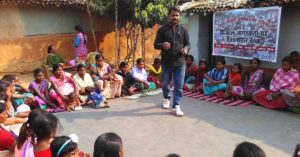TBI Blogs: How 1 Woman & the Supreme Court are Helping Make Travel for the Differently Abled Easier
Jeeja Ghosh was forcibly deboarded from a flight for having cerebral palsy. Her fight for justice led her to the Supreme Court, which reinforced that Persons with Disabilities have the Right to Dignity.

Jeeja Ghosh was forcibly deboarded from a flight for having cerebral palsy. Her fight for justice led her to the Supreme Court, which reinforced that Persons with Disabilities have the Right to Dignity
In February 2012, Jeeja Ghosh boarded a SpiceJet flight headed to Goa, expecting to attend a conference there. The shocking events that unfolded thereafter resulted, instead, in a Super Court judgement in May 2016, that reinforced the right to dignity for persons with disabilities.
Back in 2012, Jeeja was de-boarded by flight personnel because the pilot insisted that cerebral palsy rendered her unfit to travel unescorted.
Fortunately, Jeeja didn’t let the matter go without a fight.
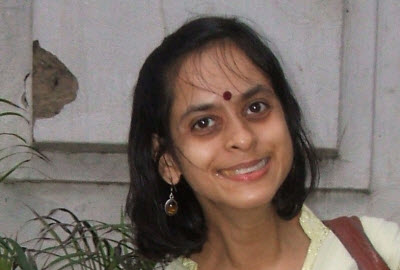
Soon after the incident, she filed a writ petition with the Supreme Court of India, seeking (a) an order to the flight authorities to comply with the civil aviation requirements on ‘Carriage by air of Persons with Disabilities and / or Reduced Mobility,’ that were issued in 2008; (b) directions to the government to monitor the compliance of transport service providers with the aforementioned requirements; (c) order appropriate legal action on Jeeja’s complaint against SpiceJet; and (d) compensation from the flight authorities for time & money lost due to the incident and the trauma she was subjected to.
The bench of Justices A.K. Sikri and R.K. Agarwal handed down the decision on May 12, 2016, wherein they made recommendations for modifying the civil aviation requirements.
They also ordered SpiceJet to pay Jeeja a compensation of Rs. 10 lakhs for the unreasonable discrimination she faced.
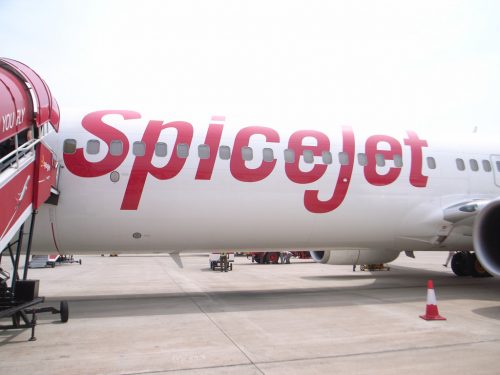
The forward-thinking tone of the judgment is significant. Throughout, it acknowledges that the experiences of persons living with disabilities are largely not understood or are ignored by the able-bodied. It cracked down on the social perception towards people with disabilities, highlighting the fact that society treats them differently and views them as individuals in need of sympathy.
Our society underestimates persons with disabilities and doesn’t ensure their independence or self-reliance.
Due to this, persons with disabilities have been marginalised and excluded from mainstream society. Our current efforts are insufficient to enable all persons to participate fully as productive members of society. Persons with disabilities face various societal barriers while accessing public spaces, employment and other opportunities and resources.
The Court recognised that the rights of persons with disabilities are rooted in human dignity. Like everyone, they too desire to live a fulfilling life.
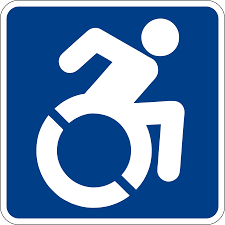
The judges also noted that there were a number of instances where persons with various disabilities on-board aircrafts had been discriminated against and subjected to humiliating treatment, including forcible de-boarding and signing of indemnity bonds.
These instances prove that we still have a long way to go, in terms of both, societal attitudes as well as enforcement of aviation requirements, if not the content of these requirements themselves.
The Ministry of Civil Aviation, recognising that there were shortcomings in the Civil Aviation Requirements on the subject of ‘Carriage by air of Persons with Disabilities and / or Reduced Mobility,’ appointed a 21-member expert committee to examine the existing requirements (which were issued in 2008) and to make new recommendations for the fine-tuning of the existing ones.
The Committee issued a comprehensive report with recommendations for revising the Civil Aviation Requirements. The report was filed before the Court, and the Ministry of Civil Aviation acted on the recommendations to issue a revised set of requirements in February 2014. The 2014 requirements were largely based on the Committee report, but deviated from it in parts.
In this judgment, the Court took into account the petitioner’s input on these deviations and recommended further amendments. The recommended modifications include procurement of standardised assistive devices at airports, setting up of help desks, ensuring accessible in-flight communications, conducting security checks in an appropriate manner and seeing to the training and sensitisation of flight personnel. In fact, it looks like the training programmes for flight personnel on serving persons with disability / reduced mobility have already begun.
It is good to note that immediate action has already been taken on this front.
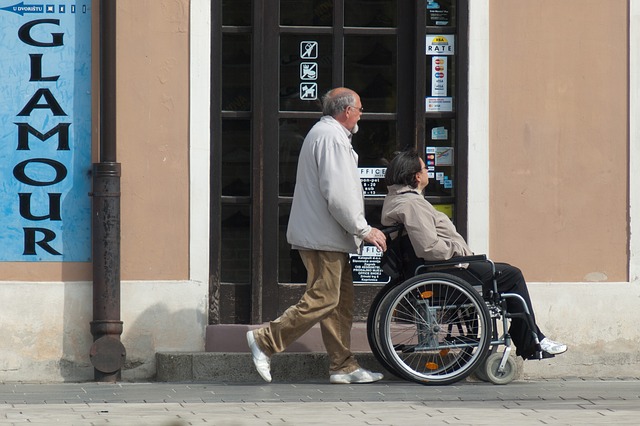
It is heartening to note the cooperation between the Court, the Government & Directorate General of Civil Aviation (as respondents no. 1 & 2), and the petitioners in modifying the Civil Aviation Requirements.What made this process remarkable is the fact that the parties shifted away from the usual adversarial style of litigation, to ‘social context adjudication.’ Instead of the usual rivalry seen in courtrooms, there was cooperation between the parties, who focused on devising the best possible solution for the benefit of persons with disabilities. This approach has been called, by various courts in recent decisions, an appropriate approach to cases that deal with questions of social justice.
At no point does the Court delve into the reasons for the existence of discrimination, choosing instead to address the clear effects of the presence of certain norms. This, again, is remarkable, as the right to equality jurisprudence that comes out of the Supreme Court has primarily understood discrimination to be the result of deliberate intention, and has addressed it as such. In the Jeeja Ghosh decision, however, it is clear that the focus is on those being deprived of access to public goods, and remedies are explored, with access to all being the focal point. By emphasising on the need for access to public goods by marginalised communities, instead of exploring the intention behind discrimination, the Court has shifted the dialogue towards addressing systemic issues that deny such access. Primacy is given to the rights of those who are being denied a basic good or service.
The Court’s closing words in the judgment, before it quotes Helen Keller, are: “To most disabled persons, the society they live in is a closed door which has been locked and the key to which has been thrown away by the others.” The Court then pointed out the disenfranchisement of persons living with disabilities because of the absence of accommodations to ensure that everyone is able to work towards self-fulfillment through equal access to goods, opportunities and to a productive life. While the Jeeja Ghosh judgment itself deals with the question of accommodations for flight passengers, its message rings loud and clear across all spheres of activity.
Update: Pursuant to the Court’s decision in the Jeeja Ghosh case, the Directorate General of Civil Aviation has announced draft amendments to the Civil Aviation Requirements for Carriage by Air- Persons with Disability and/or Persons with Reduced Mobility, which are open for comments till June 27, 2016. Amba Salelkar, of Equals Centre for Promotion of Social Justice, notes that a number of the recommendations of the Asok Kumar Committee are yet to be incorporated into the Civil Aviation Requirements, including incorporation of an internal audit systems to monitor the presence and condition of assistive devices, installation of telephonic help desks to receive requests for assistance from passengers with disabilities in advance, adoption of universal design principles to make airports accessible to the extent recommended by the Asok Kumar Committee, ensuring the appointment of a complaints resolution officer at the airport itself and establishing a complaints redressal mechanism in accordance with the Committee Report.
This article has been authored by Shruthi Chandrasekaran, Associate Director, IDIA.
Featured Image Source: Flickr
Like this story? Have something to share? Email: [email protected], or join us on Facebook and Twitter (@thebetterindia). To get positive news on WhatsApp, just send ‘Start’ to 090 2900 3600 via WhatsApp.
If you found our stories insightful, informative, or even just enjoyable, we invite you to consider making a voluntary payment to support the work we do at The Better India. Your contribution helps us continue producing quality content that educates, inspires, and drives positive change.
Choose one of the payment options below for your contribution-
By paying for the stories you value, you directly contribute to sustaining our efforts focused on making a difference in the world. Together, let's ensure that impactful stories continue to be told and shared, enriching lives and communities alike.
Thank you for your support. Here are some frequently asked questions you might find helpful to know why you are contributing?


This story made me
-
97
-
121
-
89
-
167




